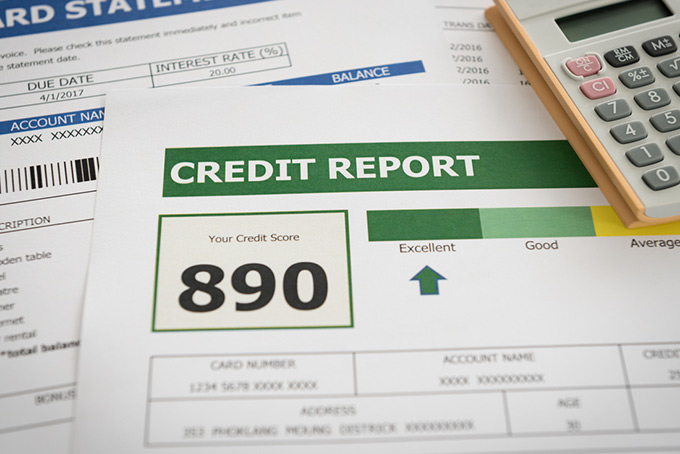So, you’ve had some money problems and are working to repair your good financial name. Good for you! Rebuilding your credit – or at least looking for ways to start down that path – will help ensure that, when the time comes, you’re able to successfully apply for a mortgage, get a student loan, or finance that small business you’ve always dreamed of opening. Granted, it’s a long road, but the steps you take now will lead to stronger financial security in the not-so-distant future.
Unfortunately, there are many missteps along that path. And many times, we aren’t even aware of the pitfalls we’ve stepped into. Here are eight important things to be aware of – and steer clear of – when you’re looking to repair your credit.
- Don’t ignore your credit report.
Your credit report is a summary of your past and current credit activity. In order to know where you stand financially, you need to understand your rating. If you aren’t accessing your free annual credit report, you’re doing yourself a huge disservice. Did you know that you’re entitled to access your report each year from each credit bureau: Equifax, Experian, and TransUnion? This means that if you space out your access to, say, one per quarter, you can check up on your credit every four months.
Keep in mind that the credit bureaus use five components to determine your credit score. Here is how each is weighted:
- Payment history: 35 percent of your score
- Credit utilization rate: 30 percent
- Length of time you have had credit accounts: 15 percent
- Amount of new credit you have: 10 percent
- Your credit mix: 10 percent
- Don’t assume the credit bureaus are always right.
When doing your regular review of your credit reports, be sure to look for any strange activity. You might catch signs of identity theft, and this is best nipped in the bud. You might also spot clerical errors: The Federal Trade Commission says that one in five consumers has found a discrepancy on their report. Incorrect details can range from minor errors in your name, address, and past or present employers to inaccuracies about your credit accounts, payments, or balances to gross errors such as getting your financial history mixed up with someone of a similar name.
- Don’t miss payments.
Your payment history is the most important part of your credit score. Perhaps surprisingly, a single missed payment can lower your score by 100 points or more. If you’re having a hard time remembering to pay your bills, set up an electronic reminder or an automatic payment. If you can’t afford to pay off your balance, at least be sure to pay your minimum balance each and every time.
- Don’t max out a credit card.
“Credit utilization” makes up a significant 30 percent of your score. This simply means how much of your available credit you are using. Shouldering a high balance on credit card accounts means you have high credit utilization, which implies high risk and can negatively impact your score. To rebuild good credit, keep utilization at 25 percent or less – if your credit card has, say, a $5,000 limit, try not to let your balance exceed $1,250.
- Don’t close out your long-standing credit cards.
Remember your first credit card? That old no-frills card you got in one of your first moves toward financial freedom? If you still have that account, great! While you might be tempted to purge your wallet of that old card, keep it – especially if you don’t use it very often. For one, the longer you’ve held a card, the more reliable the credit bureaus consider you. Remember, the length of time you have had your credit accounts makes up 15 percent of your score. More importantly, if that card has a zero balance, it’s actually helping you by decreasing your credit utilization ratio.
- Don’t avoid credit cards.
It may seem counterintuitive, but not having a credit card can damage your financial strength in the eyes of the credit bureaus. Without a credit card, you have no way to show that you can use one responsibly – and this is an automatic red flag. If you’ve stopped using credit because you feel it helps you be more financially responsible, creditors might take this as a bad sign.
- Don’t limit your mix.
Your “credit mix” that makes up 10 percent of your score takes into account the variety of credit types you have. If your report is based on one type of credit – say, credit cards only – your credit score will probably reflect this lack of diversity. In the eyes of creditors, the perfect mix varies but includes a balance of credit cards, perhaps a student loan, certainly a mortgage, and possibly a line of credit thrown in for good measure. Your credit diversity shows that you have the capacity to responsibly manage several different types of accounts.

- Don’t declare bankruptcy.
It might feel like you have no other option than to declare bankruptcy. Unfortunately, this step can significantly impair your credit score, and it will impact your score for a long time. Bankruptcy is, as you might expect, one of the worst things for your score. If your score is already low, you could see it fall by another 150 points. Not only that, but that bankruptcy monkey on your back will stick around for years and years – 7 to 10 years, in fact.
Worried about your credit score? Concerned that your efforts to rebuild your credit might not be enough? Call on the down-to-earth experts at DebtGuru.com to walk you through the right steps, at the right time, to find a solution that works for you. We’ve helped many people in your same situation find financial peace-of-mind.
